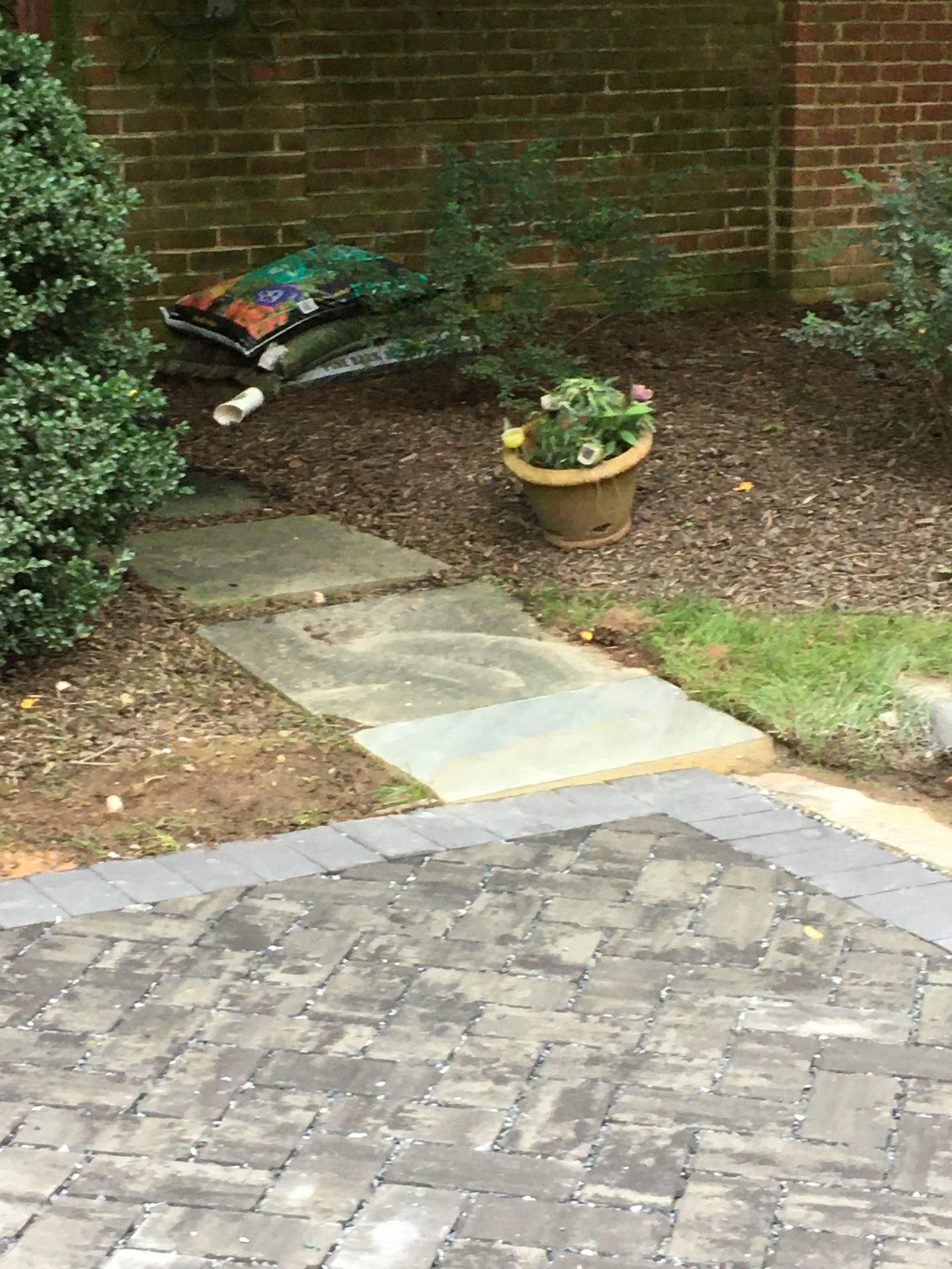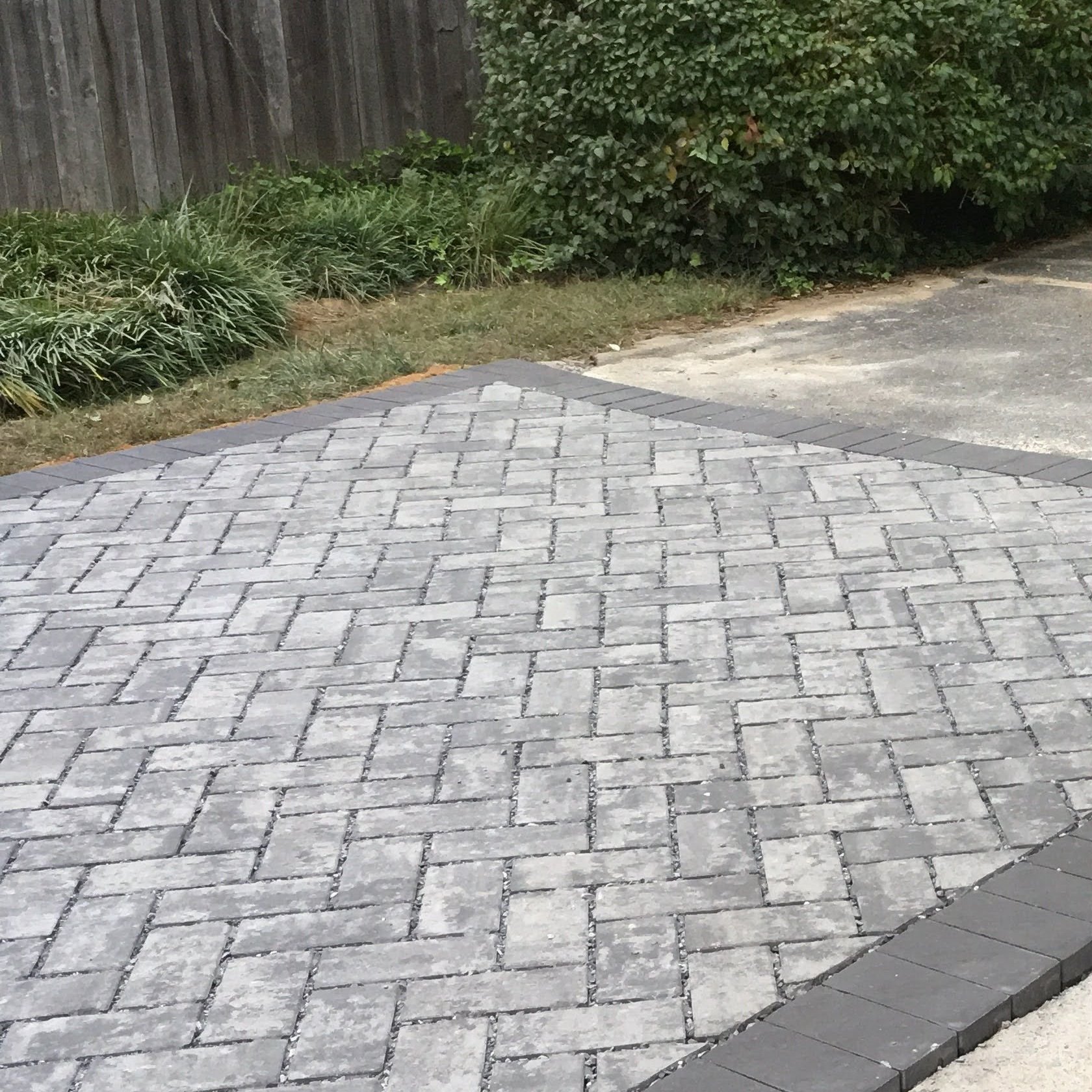



Overlook Community Pool parking lot in Bethesda has a new look and a new job. Not only is it used for parking cars, but with the completion of the new permeable paver system, it’s providing stormwater management! A portion of the asphalt has been replaced with permeable pavers. This new surface allows the rain to soak into the ground as well as support cars. So, when it rains, the water will infiltrate instead of running off the parking lot, down the storm drain system and into the Little Falls creek. More information about the project is here.
How do the pavers capture rain water?
Permeable pavers are interlocking concrete blocks that rest on a specially engineered subsurface that allows for the rain water to be held in a large gravel bed until it soaks into the ground. The 15-inch uncompacted gravel bed is key to the whole system. The blocks themselves are not permeable, but contain spaces between them for the water to drain through. Once the water goes through the spaces, it flows in the gravel bed where it is stored until it can soak into the ground. The water usually empties within 24 hours. In the Overlook system, the gravel bed is designed not only to capture the rain that falls on the pavers, but also the water running off the asphalt.
How does this help the creek?
Any water that goes into the ground instead of into the storm drain system helps the creek. When it rains, water runs off parking lots, driveways, roof tops, streets and other impervious surfaces and makes its way to the storm drain system. In Montgomery County, the storm drains go directly to the creek via pipes that run under the streets until they outlet into the creek. Everything that is washed into the water by the rain - trash, oil, dirt, chemicals, dog wastes - is dumped into the creek polluting it. In addition, the volume and velocity of the stormwater run-off causes flooding, erosion and loss of vegetation along the creek banks, habitat for wildlife.
When water is captured by the permeable pavement system, there is less water going into the creek. Instead the water goes into the ground where it will help to:
Remove pollution as it is filtered and cleaned by the micro organisms in the soil
Recharge the ground water creating a reservoir of water for deep roots to access during times of no rain.
Control local flooding
Protect the local creek from erosion.
Learn more about the project HERE.
where else can pavers be used?
Permeable pavers are a great option for many residential projects, including driveways, walkways, patios, sidewalks, shoulder parking areas and pool decks. If you are interested in learning more about managing rain water on your property and the rebate program offered by Montgomery County and Washington DC, visit our rebate page.
Why the overlook pool parking lot?
The Overlook Pool Parking Lot Permeable Paver Project is the second project in a comprehensive storm water management plan for Overlook, a 99 household neighborhood which abuts the Little Falls Stream Valley Park and overlooks the Dalecarlia Reservoir. It all started in 2017 when the Overlook Homeowners Association noticed that the community pool parking lot needed resurfacing. But they also noticed that the Little Falls creek was experiencing a lot of run-off from the hilly community and erosion was causing serious problems where the storm drain outlets approached to creek. A little research by Overlook Board Member George Clark lead him to believe that they could help with the run-off problem when they redid the parking lot and maybe there were other areas where rain water could be made to soak into the ground. And so, the Overlook Stormwater management project was born.
George contacted the Little Falls Watershed Alliance and we were able to secure a grant to do a stormwater management study for the community which owns 6.2 acres of shared common space - including the community pool. The study identified nine areas where stormwater management could be done to reduce the impact of rain run-off on the Little Falls creek. Rain gardens, curb cuts, conservation landscaping and permeable pavers were on the list of green techniques that the neighborhood could use to manage and treat the storm water. The grant also included moneys to install two demonstration rain gardens. These gardens were sited in a very visible spot near the community pools to help with a considerable erosion problem that created a mud slide on the walkway, but also to show residents just how lovely rain gardens could be. Signage at the site highlights how rain gardens help with stormwater management and how they can be used on residential property.
Overlook projects reduce pollution and run-off
Together, the rain gardens and the permeable paver projects treat over 15,000 gallons of water when it rains. They reduce pollution by keeping 0.284 pounds of phosphorus will be kept out of the creek, 167.31 pounds of silt (TSS) and 5.99 pounds of nitrogen.
next steps for Overlook
The Stormwater management plan developed in 2017, provided Overlook with a road map for future works. If the entire plan is implemented, 11.74 acres will be treated with total removal of 4.26 lbs/year phosphorus and 106.89 lbs/year nitrogen and 3,311.60 TSS. This would represent a 27% reduction of TP, a 22% reduction TN and 29% reduction in TSS for the neighborhood pollution load and a strong commitment to the environment by the residents. The next step is to revisit the plan and pick another to implement. We look forward to continuing to work with Overlook on this important project.
The Overlook Stormwater Management Projects are made possible by two grants funded by the Montgomery County Water Quality Protection fund.















